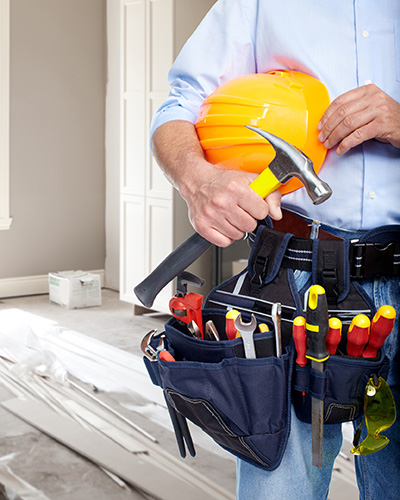So, it is time to remodel your kitchen or bathroom and you have decided to find a contractor. Here are some of the things that you should keep in mind so that you can find the best person for the job, no matter how big or small it is.
Get References
A good contractor has no problem giving you references. You can also get references for a good contractor within the community through word of mouth. Look for references on sites like Angie’s List and others where the business cannot pay to advertise or post fake reviews.
Interview the Contractor
 The interview process begins from the moment you pick up the phone and dial that number. If the phone does not get answered in a timely manner or the person who answers is rude, you may not have the best contractor for the job. Sure, being busy is a good thing but they should still be able to speak to you and answer some questions. Remember, a good contractor is the one that will treat your job like it is the only one that matters to them.
The interview process begins from the moment you pick up the phone and dial that number. If the phone does not get answered in a timely manner or the person who answers is rude, you may not have the best contractor for the job. Sure, being busy is a good thing but they should still be able to speak to you and answer some questions. Remember, a good contractor is the one that will treat your job like it is the only one that matters to them.
Get Estimates
You will notice that this says estimates, not estimate. Mike Crisci recommends not to settle for just one estimate from just one contractor. While this may add a few days to your overall time it is well worth it. You will want to compare the costs and the work of at least two contractors before you get started and commit to the first one that you find. There is no harm in letting the contractors know that you are getting estimates from their competition- in fact, this may lead them to reduce charges or to offer other incentives to choose them.
Make sure that the estimate is done in writing and that you have a time frame that is included in the estimate as well.
Get the Final Contract in Writing Before Work Starts
Before the first workman stomps through your home there should be a written, legally binding contract in hand first. This contract should clearly spell out the expectations and responsibilities of both parties, the estimated time that it will take to complete the work and who will take care of the clean-up and the expectation of payment. In most cases you will pay a set amount upfront so that materials can be purchased and then will be expected to pay the rest when the project is completed.
Your contract should also have a provision in case the work is delayed for some reason or another or if things just are not working out between both parties. Some contractors will provide a clause where you can back out during the early stages but once the work has been started it is usually not a good idea to pull the plug unless there is something terribly wrong going on.
Before You Pay the Final Bill
The day has come at last. The contractor says that the work has been completed and is now waiting for their final payment. Before you write the check and hand it over, you need to inspect the work that has been done to make sure that you are fully satisfied. You should also make sure that the clean up is done or at least is in process while you are writing that check. Don’t be afraid to remind the crew of the clean up spelled out in the contract. Don’t be afraid to ask questions or to speak up about things that do not meet your full expectations. You have to make sure that you are getting what you have paid for and your satisfaction is part of that. A good contractor wants you to be thrilled with their work because word of mouth is the best advertising there is.
Other Questions Before the Contractor Leaves
Finally, before you part ways with the contractor ask about upkeep and maintenance of any new items, flooring or wall coverings. They can typically tell you the easiest and best way to care for these items including how to keep them clean on a day to day basis so that you don’t accidentally damage them and so that your remodeled room stays as fabulous as the day that it was first completed.
